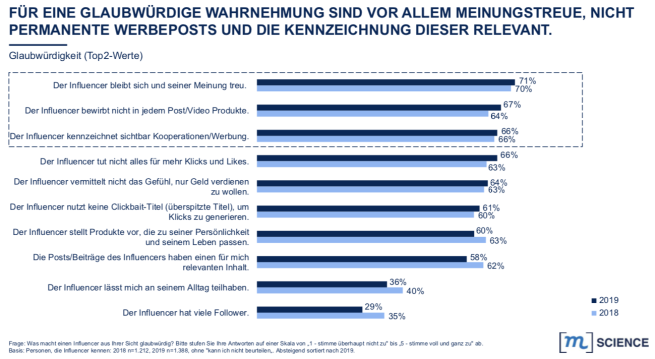Und wieder kuratierte Beiträge aus dem tägliche Wahnsinn des Marketings:
Nehmen Martech-Ausgaben zu oder ab?
Laut einem aktuellen Report des World Advertising Research Center (WARC) werden Unternehmen im kommenden Jahr 121,5 Milliarden US-Dollar in Marketing Technologie investieren. Dies sei ein Plus von 22 Prozent und es gehe weiter, so der Bericht auf Horizont. Der Report fokussiert sich vor allem auf die USA und Großbritannien, was übrigens in der Nutzung von Technologie weiterentwickelter als Deutschland eingeschätzt wird.
Martech spend has almost doubled in just two short years in more developed markets such as North America and the UK.
über Martech is now a $121.5 billion market worldwide – Chief Marketing Technologist
Die Analysten von Gartner dagegen gehen laut Gartner CMO Spend Survey 2019-2020 (Registrierung notwendig) davon aus, dass die Marketingbudgets erstmals seit 2014 unter 11 Prozent des Unternehmensumsatzes fallen. Die Einsparungen träfen auch die Investitionen in Martech. Diese seien Jahr um Jahr um drei Prozentpunkte auf 26 Prozent der Marketingbudgets in 2019 gefallen. Von 26 Prozent Investitionen in Martech geht übrigens auch der WARC-Report aus.
Glaub keiner Statistik, die Du nicht selbst … Den Satz kennen wir.
Chief Marketing Technologist Scott Brinker greift in seinem Artikel zur WARC-Studie auch nochmals die Frage, welche Technologie benutzt wird, auf. Er sieht sich bestätigt: Immer mehr Unternehmen würden auf eine Martech-Plattform setzen, die aber durch spezialisierte Lösungen ergänzt würde. Der MarTech Stack käme nicht von nur einem Anbieter und dieser Trend setze sich fort.

Pendel schwingt zurück? Wird Marketing wieder dezentraler aufgestellt?
Scott hat in einem anderen Artikel noch eine andere Gartner-Analyse zitiert. Demzufolge würde das Pendel zwischen zentralisiertem und dezentralem Marketing mal wieder in die andere Richtung schlagen.
20% of respondents reported that they run some form of decentralized marketing organization today. By the end of 2022, however, a majority — 51% — expect they will have a decentralized structure in place.
über The (near) future of marketing is decentralized – Chief Marketing Technologist
Als Marketeer, der daran glaubt, dass man auf regionale Bedürfnisse und Besonderheiten eingehen muss, würde ich das begrüßen, besonders auch dann, wenn es zu dem von ihm postulierten Self Service-Modell in der Marketingtechnologie käme.
Bei dem Thema Self Service muss ich an das aus meiner Sicht große Versprechen im Web Content Management denken: Die Marketeers oder Experten sollten in der Lage sein, bestimmte Bereich der Unternehmenswebseite eigenständig zu pflegen, natürlich in einem gestalterischen Korsett. Die Realität ist jedoch noch immer, dass zentrale Abteilungen Webseiten managen und Updates oft endlos dauern.
Influencer Marketing auf dem absteigenden Ast?
Influencer Marketing ist seit geraumer Zeit in aller Munde. Mit Professor Dr. Claudia Hilker habe ich das Thema ja auch kürzlich in einem Gespräch auf der DMEXCO behandelt und insbesondere auch die Unterschiede zwischen Influencer Marketing im Consumer-Markt und im B2B-Umfeld behandelt. Auch wenn mein persönlicher, beruflicher Fokus im B2B-Umfeld liegt, möchte ich doch auf eine Studie von Wavemaker verweisen. Demzufolge nimmt jeder zweite Deutsche Influencer unterdessen vor allem als Werbebotschafter wahr und verbindet sie mit bezahlter Werbung. Das hat natürlich Einfluss auf die Glaubwürdigkeit und Authentizität. Weitere Informationen zur Studie befinden sich in diesem Beitrag auf Horizont und hier bei Absatzwirtschaft:

Dem Thema Influencer Marketing im B2B-Umfeld widmet sich auf CMSWire in einem aus meiner Sicht lesenswerten Beitrag, in dem viele „wahre“ Aussagen zu finden sind, angefangen von der Kategorisierung von „Beeinflussern“ mit deren auch finanziellen Interessen bis zur kontinuierlichen Pflege der Beziehung. Und ja, Influencer haben natürlich auch ihre eigene Agenda und Ziele. Und ja: „Your influencer marketing program needs to be embedded in what you are doing across marketing, not just a side project …“
Social Media im Feigenblatt-Modus …
Michel Kroker hat in seinem Beitrag die Social Media-Realität in Unternehmen sehr gut beschrieben. Nur wenige Unternehmen investieren die Ressourcen und die Zeit, über Social Media-Kanäle wirklich in Dialog zu treten. Stattdessen sind es Beschallungskanäle, auf denen offizielle Botschaften hinausgeblasen werden. Klingt jetzt so zeigefinger-besserwisserisch und das, obwohl auch ich Angebote meines Unternehmens promote, hier und da auch vorgefertigte Tweets und Nachrichten eins zu eins weitergebe. Das ist auch aus meiner Sicht solange ok, solange es nicht Überhand nimmt und man auf der anderen Seite auch Unterhaltungen führt und vor allem auch auf besagter Augenhöhe kommuniziert und reagiert. Sonst sind die Social Media-Kanäle in der Tat nur alternative Distributionskanäle für PR und Marketing: „Daher ist Social Media für viele Unternehmen aktuell nur ein Feigenblatt!“
…. aber dafür wird in Social Media-Werbung investiert
Das Mediaagentur-Netzwerk hat seinen Advertising Expenditure Forecasts veröffentlicht und dabei festgestellt, dass Social Media im laufenden Jahr mit 13 Prozent der drittgrößte Werbekanal, hinter Fernsehen (29 Prozent) und Paid Search (17 Prozent), sein wird. Aber nicht in Deutschland … Wir setzen eher noch auf Print, so Olivier Korte, Managing Director Zenith auf WuV.
WhatsApp Ads werden für 2020 erwartet
Newsletter dürfen in Kürze nicht mehr über WhatsApp verschickt werden. Dafür kommen wohl in 2020 erstmals Anzeigen auf WhatsApp. Die Gerüchte gehen ja schon geraume Zeit um, doch nun scheint es ernst zu werden, berichtet eMarketer.
Ads on WhatsApp are to be expected sometime in 2020. And most advertisers we spoke to for our new report on global messaging apps agreed that Status—WhatsApp’s version of Stories—makes sense as a testing ground for ads.
Ich selbst nutze WhatsApp und auch die anderen Werkzeuge des Facebook-Konzerns nicht mehr, weil mir die Machtkonzentration von Facebook zu groß geworden ist und auch zu viele Datenpannen passiert sind. Leider habe ich nur wenige meiner Freunde überzeugen können, auf andere Messenger umzusteigen. Einer sagte, als ich das mit der Werbung vor einigen Monaten ankündigte: „Das ist der Moment, in dem ich wechseln würde.“ Jetzt bin ich natürlich gespannt. Meine Prognose ist, dass es eher nicht passieren wird. Schauen wir mal.
(Stefan Pfeiffer)






